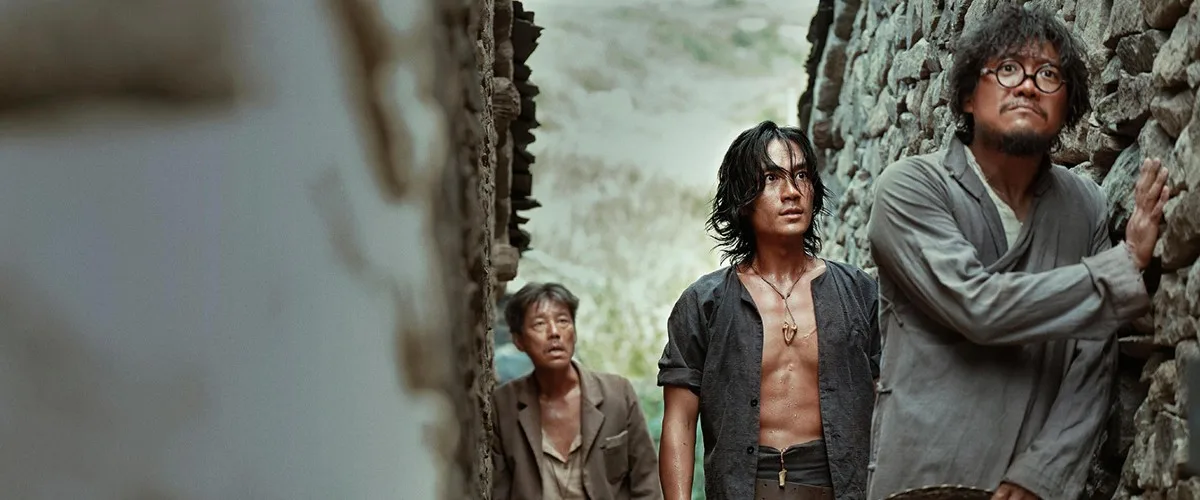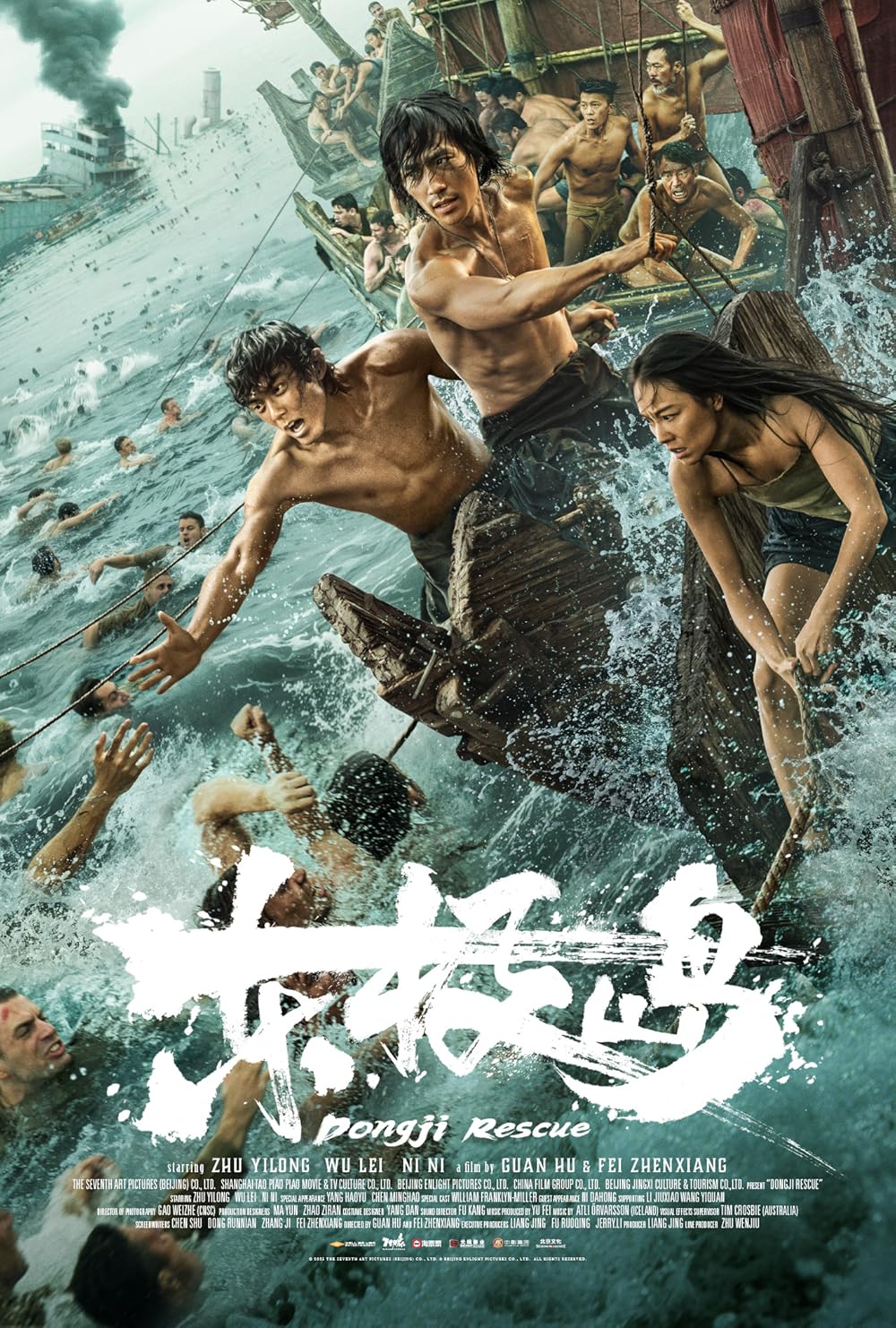When you can see what the hell is going on, “Dongji Rescue” is one visually sumptuous, heavily embellished account of heroism during World War II.
The movie takes us back to 1942, when a Japanese cargo liner (named the Lisbon Maru), carrying British POWs, was torpedoed by a U.S. submarine and sank in 24 hours in the East China Sea. Chinese fishermen from nearby Dongji Island rescued over 300 POWs who survived the sinking.
Since this is a Chinese production, “Dongji Rescue” places most of its focus on the island and its inhabitants, whose island was occupied by the Japanese during the war. As this story tells it, one English medic (William Franklyn-Miller) got out and was rescued by a compassionate villager named Ah Dang (Wu Lei). This act of kindness causes a conflict between Ah Dang and his older, cynical brother Ah Bi (Zhu Yilong), who doesn’t want more Imperial Japanese tyrants swarming around.
Zhu and Wu are the resident, studly badasses of this picture. Possessed with a superhuman ability to hold their breath underwater for an insane amount of time, these chiseled, long-haired alpha men eventually become the generals who lead this charge. Even before the other fishermen show up, they’re already liberating prisoners and putting their hands on the bad guys.
Shot with IMAX cameras (IMAX showings around these parts are very unlikely) and an $80 million budget, “Dongji Rescue” is a bombastic Chinese blockbuster that, like so many big-budget WWII films from other countries that came before it, makes the case that their people fought with more honor and bravery than anybody else. When they’re not serving up fetching widescreen shots of this downright paradisiacal island, directors Guan Hu and Fei Zhenxiang do stage large-scale action sequences featuring our protagonists and a whole lotta extras. The climactic rescue alone is staged like it’s set in a perfect storm, with raging waters flowing all over the place as the fisherpeople—Ah Bi’s boo Ah Hung (Ni Ni) leads this mission—try to save POWs who are getting mowed down by enemy machine guns.
Thankfully, that sequence is easier on the eyes than other, nocturnal parts of the film. I don’t know if it was the screener copy I received, but the scenes set in darker surroundings (like the mid-movie night rescue the boys initiate when they’re on the ship) lack brightness. I want to think this is the filmmakers’ grim way of putting the audience in the islanders’ shoes—usually in the dark (literally and figuratively), unable to see any light ahead of them. But I have a feeling the directors have been watching the dimly-lit tentpoles we’ve been making over the years and just decided to bite our style.
Perhaps the most intriguing aspect of “Dongji Rescue” is how it begins as a fact-based yet formulaic story of meek, simple folk overcoming their oppressors and doing what’s right. Then, halfway through, it becomes a chaotic, bloodthirsty tale of vengeance that borrows heavily from the Mel Gibson School of War-Movie Filmmaking. Since the Japanese are portrayed as either homicidal sadists or spineless yes-men, you know their comeuppance will be severe, quite messy, and uncomfortably satisfying. Before this movie, I’ve never heard knives jabbed in the body with such lurid-sounding plunging.
If anything, “Dongji Rescue” proves that the Chinese can make WWII films as spectacular—and spectacularly jingoistic—as the ones we make. Besides, we once let Michael Bay tackle Pearl Harbor, so who the hell are we to judge?




















